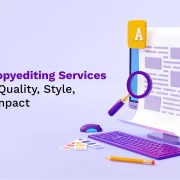
Embedded Testing: Types and Challenges
Summary
This article discusses embedded testing, covering functional, non-functional attributes, challenges, and the need for automation in software and hardware testing.
Embedded Testing is a process where functional and non-functional attributes of both software and hardware are checked to make sure that the final product is free of defects. Embedded testing validates if the final product (of embedded hardware and software) fulfills the business requirements.
It is an excellent approach owing to its rigor to ensure security in critical applications. Embedded testing should be carried out carefully before granting certification.
Table of Contents:
- Embedded Testing: How It Is Performed
- Types of Embedded Testing
- Challenges in Embedded Software Testing
- Conclusion
Embedded Testing: How It Is Performed
In Embedded Testing, the software is provided with some inputs and a piece of the software is executed. Then the state of the software is observed and checked if the output matches the expected outcome, and conforms to the business requirements and if there are no crashes of the system.
Types of Embedded Testing
1. Software Unit Testing
In this, the unit module is either a class or a function and the testing is done by the developer, typically in a peer-review model. Based on the module’s specification, test cases are developed.
2. Integration Testing
Integration testing can be further classified into:
- Software integration testing
- Software/hardware integration testing.
Right at the end, the interaction of the hardware domain and software components are tested, which might include examining the interaction between the software and the built-in peripheral devices.
Embedded software development focuses on the actual environment, in which the software is run, which is generally created in parallel with the software. This causes inconvenience while testing since comprehensive testing cannot be performed in a simulated condition.
3. System Unit Testing
The module being tested is a full framework consisting of the complete software code and all real-time operating system (RTOS) and platform-related pieces like tasking mechanisms, communications, interrupts, and so on. The Point of Control protocol is not a call to a function/a method invocation but a message sent/received utilizing the RTOS message queues.
System resources are observed to evaluate the system’s ability to support embedded system execution. For this aspect, grey-box testing is the preferred method of testing. Depending on the organization, system unit testing is performed by a developer or a dedicated system integration team.
Also Read: Network Testing for Configuration Changes
4. System Integration Testing
In this, the module begins from a set of components within a single node. The Points of Control and Observations (PCOs) here are a mix of RTOs and network-related communication protocols and RTOS. Also, a Virtual Tester can play the role of a node to a component.
5. System Validation Testing
Here, the module is a subsystem of the complete embedded system (a complete implementation). The aim of this final test is that the output should meet the functional requirements of the external entity, which can be a person, or a device in a telecom network, or both.
Challenges in Embedded Software Testing
1. Dependency on Hardware
Given the limited access to hardware, hardware dependency is really one of the main difficulties encountered in embedded software testing. Simulators and Emulators may not accurately represent the device’s behavior or interaction and could give an incorrect sense or indication of the system performance and application’s usability.
2. Open-Source Software
If it is embedded software components, then it is most likely open source in nature and not created in-house: this means that there is an absence of a complete test present for it. There is a vast range of test combinations and resulting scenarios.
3. Software and Hardware Defects
When new software is being developed, a high proportion of hardware defects are usually identified and these defects are not only limited to software but related to hardware also.
4. Difficulty in Reproducing Defects
In embedded systems, defects are harder to reproduce. This leads to the embedded testing procedure to value every defect occurrence substantially higher than in a standard case.
Also Read: All You Need To Know About Configuration Testing
5. Requirement of Continuous Software Updates
Regular software updates are required for embedded systems such as the kernel upgrade, security fixes, different device drivers, etc. Any constraints in these updates make spotting the bug difficult. Also, the significance of the build and deployment procedure increases.
Conclusion
Embedded software testing is much more difficult than regular software testing, especially owing to its dependence on the hardware environment, which is required regularly to perform high-quality software testing.
Without custom tools, it is difficult to test the software. It is best to opt for automated software testing, as embedded automated testing provides a quicker resolution of software issues in a matter of a few hours.

Vice President – Content Transformation at HurixDigital, based in Chennai. With nearly 20 years in digital content, he leads large-scale transformation and accessibility initiatives. A frequent presenter (e.g., London Book Fair 2025), Gokulnath drives AI-powered publishing solutions and inclusive content strategies for global clients







